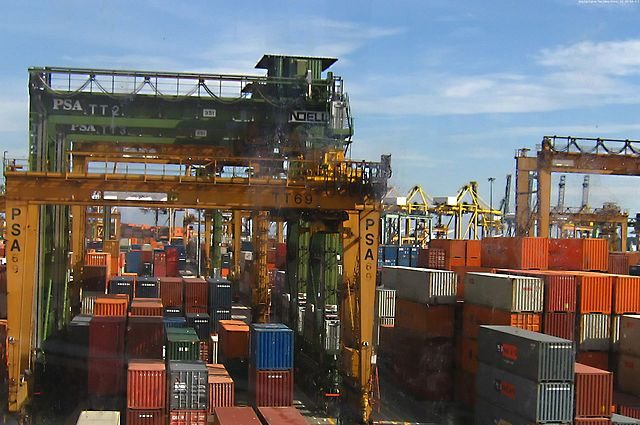Singapore and Thailand have signed a mutual recognition arrangement (MRA) recognizing the compatibility of their Authorized Economic Operator (AEO) programs, the first such agreement to be signed between two Association of Southeast Asian Nations (ASEAN) countries.
Under the MRA signed late last month by Singapore Customs and the Customs Department of Thailand, companies certified by Singapore Customs as having robust security practices will enjoy faster clearance for their goods exported to Thailand.
Companies certified by Thailand will enjoy the same level of facilitation for their goods exported to Singapore.
Recognized as having lower risks, these companies will benefit from reduced documentary and cargo inspections, said Singapore Customs in a statement.
“The Singapore-Thailand MRA recognises the compatibility of the supply chain security measures implemented by companies certified under Singapore Customs’ Secure Trade Partnership (STP) programme and the companies accredited under Thailand’s Authorised Economic Operator programme,” it added.
Signed as an initiative under the Singapore-Thailand Enhanced Economic Relations program (STEER), the MRA is seen to deepen economic collaboration and facilitate bilateral trade growth between Singapore and Thailand.
Singapore’s director-general of customs Ho Chee Pong and director-general of Thailand’s customs Kulit Sombatsiri signed the MRA on June 29, 2018 on the sidelines of the 132nd World Customs Organization (WCO) Council Session.
“The AEO-MRA signing reinforces the strong ties and close cooperation between both our customs administrations, as well as our commitment to maintain the regional and global supply chain security. It is a significant milestone in economic and customs cooperation within our region as it would greatly facilitate legitimate trade undertaken by companies under Thailand’s Authorised Economic Operator programme as well as Singapore’s Secure Trade Partnership programme,” said Ho.
“The MRA also reaffirms our collective commitment to the ASEAN Economic Community Blueprint 2025, particularly in the area of trade facilitation, which is an important engine of growth and development,” added Ho.
“By promoting customs-to-customs cooperation and mutual recognition of our AEOs, we can target high-risk shipments more effectively and expedite customs procedures for lowrisk shipments, thus benefiting our traders and significantly contributing to trade facilitation,” said Kulit.
“Our customs administrations have continuously developed close collaboration and strengthened bilateral cooperation in various areas of our mutual interests, including customs matters. Our cooperation will be even further strengthened by this important milestone,” he said.
Singapore’s total trade with Thailand amounted to more than SGD30 billion (US$22 billion) in 2017, making Thailand its third largest trading partner in ASEAN and ninth largest training partner internationally.
Singapore Customs’ Secure Trade Partnership program is based on the WCO’s Framework of Standards to Secure and Facilitate Global Trade (WCO SAFE Framework of Standards).
The framework highlights the need for all stakeholders to take measures to ensure the security of the supply chain, and for customs administrations to establish AEO programs to certify companies which adopt robust security practices.
To date, 92 companies are certified as AEOs by Singapore Customs.
MRAs multiply the benefits of national AEO programs by elevating trade facilitation and trade security to the international level. Such arrangements also help to facilitate continuous secure trade flows in situations of high alert or when international trade is disrupted.
Singapore Customs is the first customs administration in Southeast Asia to enter into mutual recognition of AEO programs with other customs administrations. To date, it has signed MRAs with nine customs administrations: Thailand, Australia, Canada, South Korea, Japan, China, Taiwan, Hong Kong, and the United States.
Photo: No machine-readable author provided. Calvin Teo assumed (based on copyright claims).









